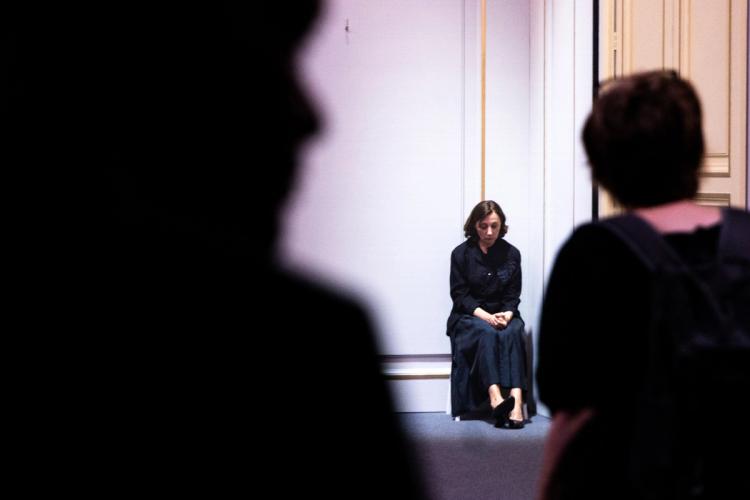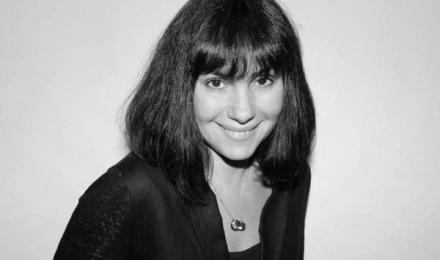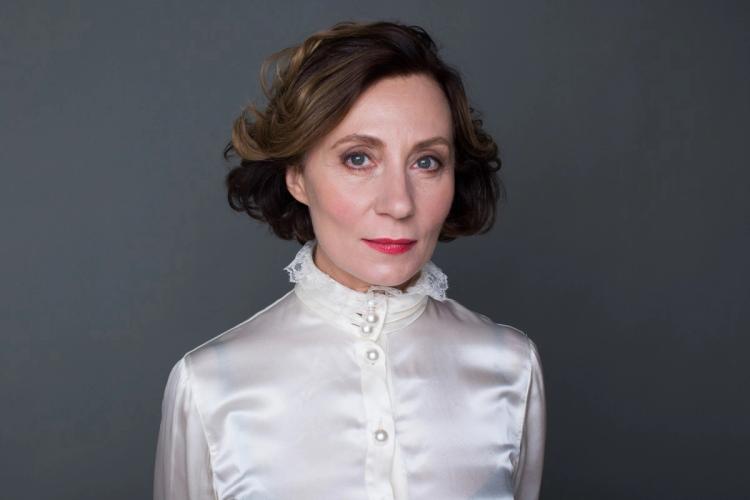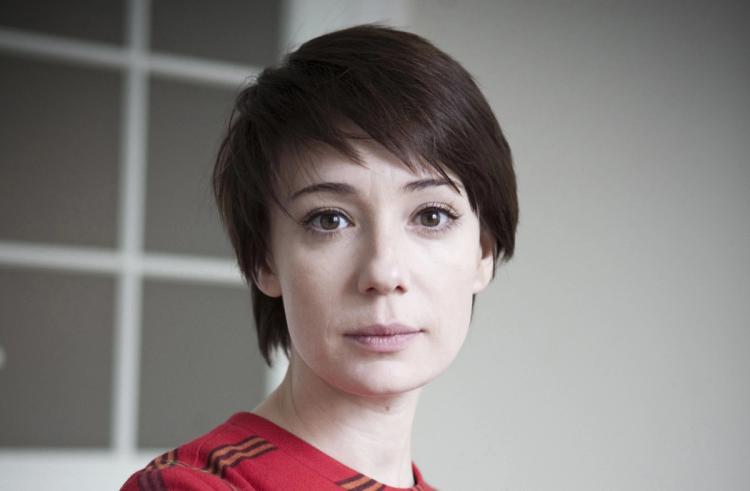Museum of Uncounted Voices
by Marina Davydova
PHOTO: HAU

Duration: 115 min
Language: various with English/Deutsch translation
HAU | Hebbel am Ufer (HAU2)
Hallesches Ufer 34, 10963
HAU | Hebbel am Ufer (HAU2)
Hallesches Ufer 34, 10963
HAU | Hebbel am Ufer (HAU2)
Hallesches Ufer 34, 10963
HAU | Hebbel am Ufer (HAU2)
Hallesches Ufer 34, 10963
HAU | Hebbel am Ufer (HAU2)
Hallesches Ufer 34, 10963
HAU | Hebbel am Ufer (HAU2)
Hallesches Ufer 34, 10963
HAU | Hebbel am Ufer (HAU2)
Hallesches Ufer 34, 10963
HAU | Hebbel am Ufer (HAU2)
Hallesches Ufer 34, 10963
HAU | Hebbel am Ufer (HAU2)
Hallesches Ufer 34, 10963
HAU | Hebbel am Ufer (HAU2)
Hallesches Ufer 34, 10963
HAU | Hebbel am Ufer (HAU2)
Hallesches Ufer 34, 10963
HAU | Hebbel am Ufer (HAU2)
Hallesches Ufer 34, 10963
Concept, Text, Direction: Marina Davydova
Actors: Marina Weis / Chulpan Khamatova
Voices: Odin Biron (Episode I EMPIRE), Jamal Ali, Luka Kalandadze, Igor Shugaleev, Gurgen Tsaturyan, Oleksandr Yatsenko (Episode II NATIONS), Jamal Ali, Odin Biron, Marina Davydova, Boris Falikov, Luka Kalandadze, Alexey Kokhanov, Elizaveta Petrova, Farrukh Pirov, Natalia Pschenitschnikova, Igor Shugaleev, Gurgen Tsaturyan, Ekaterina Voronova, Oleksandr Yatsenko (Episode IV PEOPLE)
Music: Vladimir Rannev
Video: Oleg Mikhailov
Set design: Zinovy Margolin
Light design and sound: Iurii Galkin
Design: Jürgen Fehrmann, Gea Gosse
Costumes: Marcus Barros Cardoso, Vera Liulko, Aleix Llusa Lopez
Commissioned by HAU Hebbel am Ufer
Production: HAU Hebbel am Ufer, Wiener Festwochen
Co-production: Theater Freiburg
The Union of Soviet Socialist Republics was founded in Moscow’s Bolshoi Theatre on 30 December 1922. 100 years later, the critic, curator, and theater-maker Marina Davydova created the “Museum of Uncounted Voices.” She demonstrates how the borders of the national republics within the USSR came into being, why those borders today have proved to be time bombs, and to what extent the cultures of the countries that once made up the Soviet Union have always differed. Visitors enter a space stylised as a museum that comes to life before their eyes, transforming itself and offering an expedition through complex contexts. The itinerary itself proceeds from an apparently objective historiography to the contradictory and the existentially biographical.
Contributors

marina davydova
theatre critic, director and playwright
Born in Baku, Azerbaijan, in an Armenian-Russian family, she graduated in 1988 from the department of theatre criticism at the Russian Academy of Theater Arts. For many years, Davydova wrote theater reviews for Izvestia, one of the oldest Russian newspapers, and was the editor-in-chief of TEATR magazine. As an author, she published two monographs analyzing the last twenty years of the history of Russian theater. Marina has received numerous awards for theater criticism and won the Stanislavsky Award for the best book of the year in 2005. Additionally, she regularly publishes articles in the German magazine Theater heute. Davydova is one of the initiators of the NET festival (New European Theatre) in Moscow, founded in 1998, and served as its artistic director for 23 years. In 2016, Markus Hinterhäuser engaged her as a curator for the drama programme of the Wiener Festwochen. Beginning in the 2024 season, she will be the director of drama at the Salzburger Festspiele. As an open opponent of Russia’s war against Ukraine, Marina Davydova lives in exile in Berlin.

marina weis
actress
Weis was born into an ethnic German minority in the Soviet Union. In 1991, she graduated from the Moscow Art Theatre School. After completing her studies, she performed at the Stanislavsky Drama Theater. In 1993, she moved to Germany, where she has lived and worked ever since. She has acted in theaters in Hamburg, Berlin, and Karlsruhe, and has appeared in films and television series. Marina was starring in the premiere performance of the Museum of Uncounted Voices.

chulpan khamatova
actress
Khamatova is an internationally acclaimed film and stage actress, a well-known philanthropist, and an Honorable Artist of Russia. She performed on the stages of Moscow’s Sovremennik Theatre and the Theatre of Nations for many years. She is most recognized internationally for her role in "Good Bye, Lenin!" (2003). In 2006, Khamatova was a member of the six-person jury at the 63rd Venice Film Festival headed by French actress Catherine Deneuve. In March 2022, Khamatova left Russia and became a permanent member of the troupe at the New Riga Theatre. She has appeared on Latvian TV and has made public speeches at anti-war protests in Riga, Latvia.